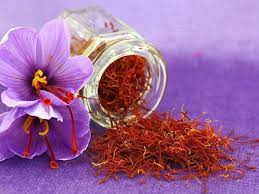When it comes to managing ADHD (Attention Deficit Hyperactivity Disorder), exploring natural alternatives can be a valuable approach. One herb that shows promise in this regard is saffron. Saffron, derived from the Crocus sativus flower, has a rich history of medicinal use and is now gaining attention for its potential benefits in addressing ADHD symptoms.
ADHD is a neurodevelopmental disorder characterized by challenges in sustaining attention, impulsivity, and hyperactivity. While conventional treatments such as medication and therapy are commonly used, many individuals are seeking gentler and more holistic options. Saffron, with its bioactive compounds, offers a natural alternative worth exploring.
herbs for adhd contains several bioactive compounds, including crocin and safranal, which have been studied for their potential effects on brain function and mood regulation. These compounds are believed to modulate neurotransmitters in the brain, including serotonin and dopamine, which play vital roles in attention and mood. By influencing the availability and balance of these neurotransmitters, saffron may help alleviate ADHD symptoms and promote better focus and emotional well-being.
One advantage of saffron is its historical use as a culinary spice, making it easily accessible. It can be incorporated into various dishes or infused into teas to enjoy its potential benefits. However, to ensure a consistent dosage and potency, saffron supplements are also available. These supplements are standardized to provide a specific concentration of saffron’s beneficial compounds, making it a convenient option for those seeking a reliable dose.
When considering saffron as a treatment option for ADHD, it’s important to consult with healthcare professionals who specialize in ADHD management. They can assess your individual needs, consider potential interactions with other medications, and guide you on the appropriate dosage and duration of use.
It’s worth noting that saffron should not be considered a standalone treatment for ADHD. Instead, it can be part of a comprehensive approach that includes behavioral interventions, lifestyle modifications, and other supportive strategies. Combining saffron with other evidence-based therapies can potentially enhance its effectiveness in managing ADHD symptoms.
In conclusion, saffron offers a promising option in the quest for natural alternatives for ADHD management. Its bioactive compounds may contribute to better focus, attention, and emotional well-being. Whether used as a culinary spice or in the form of supplements, saffron can be part of a holistic approach to addressing ADHD symptoms. However, it’s crucial to seek guidance from healthcare professionals to ensure its safe and appropriate use. Unlock the potential of herbs for ADHD and discover the benefits that saffron may bring to your journey towards better focus and well-being.



